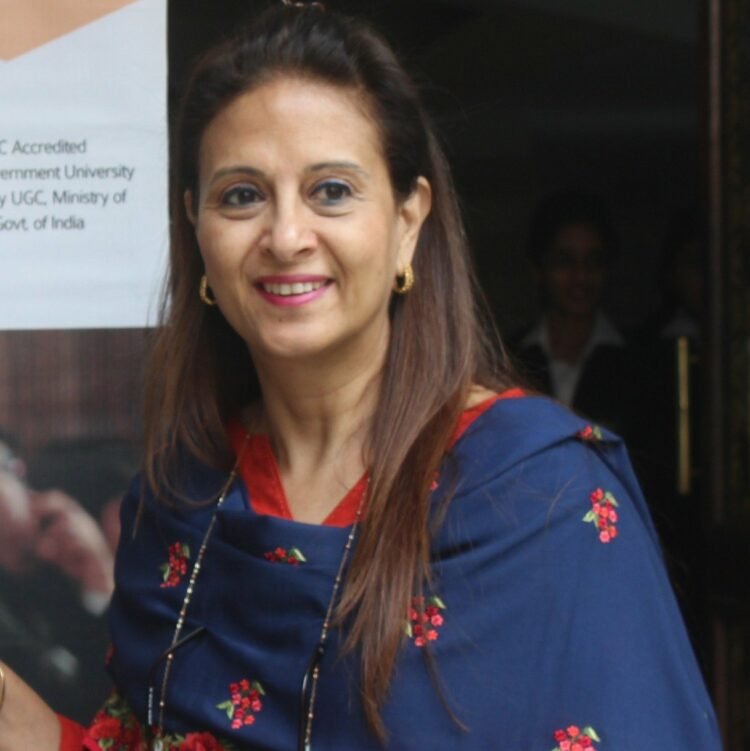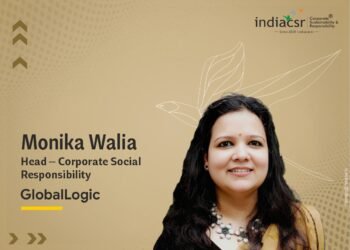Interview with Dr. Tehnaz J. Dastoor for India CSR Leadership Series with Nayan Mitra
The best part about CSR is that it brings in multi-stakeholder commitments. While, it has the Corporations on one side, it has the people, profit and planet on the other; and the NGO sector that acts as a go-between. The dynamics are different for each of the cases. Today, we are happy to bring to you the perspectives from an international leader who has worked for many years with UNICEF globally, and currently provides consultation to the non-governmental sector.
What, according to you, should be the one priority area for CSR intervention in India?
In my opinion there are two areas of concern which should be prioritized for CSR interventions in India the first deals with sustainability of funding and the second with skilling.
I believe that corporates should examine their funding strategies like they do in terms of setting goals and targets for their companies – these should be long term, strategic and sustainable as behavioral change takes time. However, sometimes funds are diverted and programs stopped due to corporates trying to align themselves with government priorities as we noticed with the recent Swachh Bharat Campaign.
Skilling also should be a very important part of CSR interventions. As with the ‘Make in India’ Initiative, we need CSR to ensure that our youth are ‘job ready’ and also able to function as good corporate citizens in society. Hence, not only the hard skills but the soft skills too (such as good values, focus on productivity, pride in the work place etc.) should be incorporated into the program.
Is the NGO sector equipped to handle CSR grants from Corporations?
The NGO sector is a wide term encompassing all NGOs. As we are aware, some NGOs have been in the business for decades and are well in-tune with the local stakeholders and government needs. Other NGOs are newer and less experienced and may need some hand-holding during this process, but they are just as invaluable and we should assist them in building their capacities too. Both these groups are equipped to handle CSR grants, albeit with different degrees of efficacy.
With the new CSR mandate, do you observe any change whereby businesses and societies are coming together at last, in India?
As the Companies Act outlines areas of engagement for use of CSR funds, corporates are slowly getting more aligned and engaged with societal issues and needs. Corporates are no longer mere donors to the process but are much more involved with the programs themselves.
We certainly encourage them to not only come occasionally and view the programs but to also participate in the on-ground process and engage with the stakeholders themselves. Thus they can directly see how their money is being spent and the subsequent effect on the beneficiaries.
Please do share how successful CSR projects that you have witnessed in India.
There are a plethora of successful projects in India but I will share one of the projects which I was directly involved with – the making of a ‘model’ Anganwadi Centers in the Metiabruz area of Kolkata.
Following an extensive review of the needs of women and children in Bengal, the CII-UNICEF CSR Hub, together with the government, and in collaboration with local stakeholders, decided to undertake the above program. Based on our survey and project proposal, we approached a number of the CII members for CSR funds.
In order to ensure that the program was as inclusive as possible we decided to work where there was the greatest need – in an impoverished, minority-dominated, highly populated urban area, where public services were extremely poor and pre-school children suffered from a degree of undernourishment.
The program itself was a nutrition-lead one with major elements of health and sanitation and we chose 20 Anganwadis with the donor funds for our pilot project.
We assisted with enhancing the nutritional value through the inclusion of certain foods with spaced-feeding of these children. The centers were physically upgraded, additional educational supplies, toys, mats, utensils etc. provided, and child-friendly toilets constructed. Anganwadi workers were given additional training in nutrition, sanitary health and education with refresher courses every few months. They were monitored by UNICEF and our government counterparts regularly and reporting was undertaken in a vigilant manner. Donors as well as senior Govt. officials were encouraged to view the program at their discretion.
The success of this initiative was that the government, following their reviews, decided to utilize this model and incorporated it in over 114,000 Anganwadi Centers in the state!
Do tell us more about the Unicef-CII CSR Hub that you pioneered in Eastern India.
In 2011, prior to the Companies Act and on behalf of UNICEF, I approached the Regional Director of CII to share with him our ideas about the creation of a first-of-its-kind Unicef-CII CSR Hub in India.
The main functions of the Hub were: to engage with corporates and share with them Unicef’s concerns about social issues and impending needs; pool corporate resources for larger projects; share current proposals in need for funding; provide an interface between NGOs, civil society groups and the local government; and assist the donors with reporting, monitoring and evaluation of current projects with 100% accountability of funds used.
In December 2011 UNICEF and CII Eastern India signed an MOU to work in collaboration with each other and shortly after this other regions of the country followed our lead.
You have worked extensively with children in crises and war-torn areas in Afghanistan, Angola, Bosnia, Chechnya, Ethiopia, Lebanon, Mozambique and Somalia, to name a few. Are the Corporations here doing their part?
The structure of war-torn societies is obviously very unique and there are different stages of conflict. What I witnessed was that in some theaters of conflict, either NATO or Allied Forces took the lead and a number of activities in my sphere of influence had to be coordinated with them.
As the then UNICEF Global Coordinator for Children Affected by Mines and Bombs I was always in the thick of things. Usually it was government counterparts that funded my work. It was only at a much later stage that private corporations, (and usually those that had some business in the war-torn areas) that did some funding of the programs, but it was negligible compared to government sources.
Having such varied experience, what would be your one advice to the Corporations with regards to their social responsibility?
My advice would be to look at investing in the development of India’s youth. But ensure that it’s a long-term view with a 5-7 year investment program and only then will you see dividends and some good results in terms of actual behavioral change and high social impact.
About Dr. Tehnaz J. Dastoor
Dr. Tehnaz J. Dastoor has a Doctoral degree specializing in Political Economy from the University of Cincinnati in Ohio. She began her career with the United Nations Association of the United States (UNA-USA), then moved onto the UN Population Fund and finally worked with UNICEF globally.
She was, among others, the UNICEF Global Coordinator for Landmines and Focal Point for Child Soldiers. Her work entailed dealing with children in crises and war-torn areas which took her to Afghanistan, Angola, Bosnia, Chechnya, Ethiopia, Lebanon, Mozambique and Somalia among other countries. She has been and continues to be a champion of child rights and was a senior consultant with the UNICEF office in West Bengal where she helped establish the first-of-it-kind Unicef-CII CSR Hub in India. Her work at the Hub has supported programs related to nutrition, early childhood education, maternal and adolescent health and vocational training. Currently she is a Senior Consultant with International Agencies, working on child-related and skilling issues.
Dr. Dastoor also taught at John Jay College of Criminal Justice and Baruch College in New York, as an Adjunct Professor.
Nayan Mitra
Nayan Mitra comes with a rich mix of diverse professional experience of over sixteen years. She straddles seamlessly between academics, social and corporate sectors.

As a Developmental Consultant and Researcher, she works closely with some of the eminent Corporations and not-for profits of India as well as being in their Advisory and Board level capacity. She has conducted several social researches for multi-lateral agencies; the findings of which have become important bases for sustainable action. She has been a resource person in eminent Institutions of higher learning in the areas of CSR and Corporate Governance and has important peer reviewed research publications to her credit in double blind peer reviewed national and international Academic journals and books as well as delivered at key Conferences.
Her book, ‘Corporate Social Responsibility in India: Cases and Development after the Legal Mandate’ alongwith co-editor Dr. Rene Schmidpeter is a first book of its kind that charters the development of mandated Indian CSR from a multi-stakeholder perspective, that has recently received the coveted India CSR Author Award, 2017. She spearheads the India CSR Leadership Series. She was a finalist of the prestigious Chevening Gurukul Scholarship for Leadership and Excellence – 2013, as conferred by the Foreign and Commonwealth Office (FCO) of the British Deputy High Commission.
Disclaimer: The thoughts captured in the interview is solely that of the interviewee. The views expressed by the author in this feature are entirely her own and do not necessarily reflect the views of India CSR Network
Copy Right & Conditions: India CSR does not permit other websites/Agency to copy or reproduce or reprint the above article in any form.






















